Document Author
Year Published
Topic
- (-) Remove Forms filter Forms
- (-) Remove Simplification filter Simplification
- 100% Access to Justice (8) Apply 100% Access to Justice filter
- Forms (5) Apply Forms filter
- Self-Help Centers (5) Apply Self-Help Centers filter
- Trial Court Self-Help (5) Apply Trial Court Self-Help filter
- Plain Language (4) Apply Plain Language filter
- Plain Language & LEP (4) Apply Plain Language & LEP filter
- Automated Forms & E-Filing (3) Apply Automated Forms & E-Filing filter
- Best Practices for Self-Help Centers (3) Apply Best Practices for Self-Help Centers filter
- Reports, Evaluations, Best Practices, Surveys (3) Apply Reports, Evaluations, Best Practices, Surveys filter
- Research (3) Apply Research filter
- Allied Professionals (2) Apply Allied Professionals filter
- Ethics Education (2) Apply Ethics Education filter
- Judicial Ethics (2) Apply Judicial Ethics filter
- LEP and Access (2) Apply LEP and Access filter
- Reports (2) Apply Reports filter
- Strategic Planning (2) Apply Strategic Planning filter
- Triage (2) Apply Triage filter
- Articles & SRLN Briefs (1) Apply Articles & SRLN Briefs filter
- Best Practices (1) Apply Best Practices filter
- Constitutional Issues (1) Apply Constitutional Issues filter
- Courts (1) Apply Courts filter
- Impact of Self-Represented Litigant Innovations on Cost and Efficiency (1) Apply Impact of Self-Represented Litigant Innovations on Cost and Efficiency filter
- Integration with Institutional Process (1) Apply Integration with Institutional Process filter
- Judges (1) Apply Judges filter
- Justice Tech Entrepreneurs (1) Apply Justice Tech Entrepreneurs filter
- Linking a Self-Help Center to Other Services (1) Apply Linking a Self-Help Center to Other Services filter
- Technology (1) Apply Technology filter
- Working Groups (1) Apply Working Groups filter
State
Tags
Post date
Search results
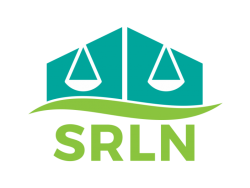
SRLN Brief: Plain Language Resources for 100% Access (SRLN 2015)
What is plain language? As described by the federal government on plainlanguage.gov, plain language is communication your audience can understand the first time they read or hear it. Plain language is recognized as an essential best practice in all access ...
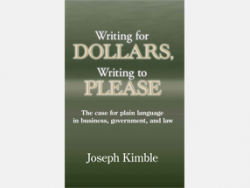
Book: Writing for Dollars, Writing to Please The Case for Plain Language in Business, Government, and Law (Kimble 2012)
This book collects the empirical evidence supporting the value of plain language in business, government, and law. Professor Kimble summarizes 50 studies (no less) that show using plain language can save organizations and agencies a significant amount of ...

News: New York Combines Technology, Partners and Re-Engineering Reducing Court Time for DV Victims to Less Than an Hour and Saving Clerks 30 Minutes per File (New York 2015)
With the most recent statistics reporting that 1 in 3 women experience domestic violence, hundreds of thousands of protection orders are filed in New York State Courts each year. The Advocate Family Offense Petition Program offers providers across the s ...
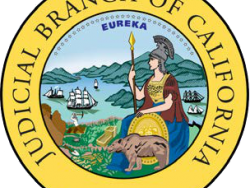
Weblinks: Efficiencies and Innovation in California (Judicial Branch of California 2015)
On its webpage entitled, Efficiencies & Innovations (courts.ca.gov), the The California judicial branch, which is widely acknowledged as a national leader in developing and implementing programs that enhance access to justice, provides information and ...
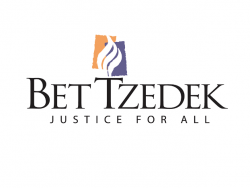
Report: Making Self-Help Work: Bet Tzedek’s Conservatorship Clinic (Bet Tzedek 2013)
Since 2007, Bet Tzedek Legal Services has been running a self-help conservatorship clinic in partnership with the Los Angeles Superior Court. Originally designed to serve 150 self-represented litigants per year, the program served more than 1,400 self-re ...
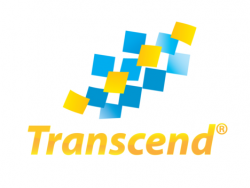
Report: A Comparative Readability Study of Plain Language Court Forms (Mindlin 2012)
This article presents the results from the first quantitative readability study of plain language court forms in the United States. Sixty citizens on a jury panel were selected to respond to brief questionnaires that tested relative comprehension of plain ...

News: Forms in Your Pocket: Mobile Solutions Are Nearly Ready to Scale (Pew Research Center 2016)
According to the Pew Research Center's Internet and Technology Mobile Fact Sheet (pewresearch.org), sixty-four percent of American adults own a smart phone (www.pewinternet.org/fact-sheets/mobile-technology-fact-sheet/), and legal aid organizations i ...
Article: Turner v. Rogers- Improving Due Process for the Self-Represented (Zorza 2012)
Article by Richard Zorza on the U.S. Supreme Court’s decision in Turner v. Rogers (2011) and how courts should see this decision as an opportunity to improve their services and programs for self-represented litigants. Recommended Citation: Richard Zorza, ...